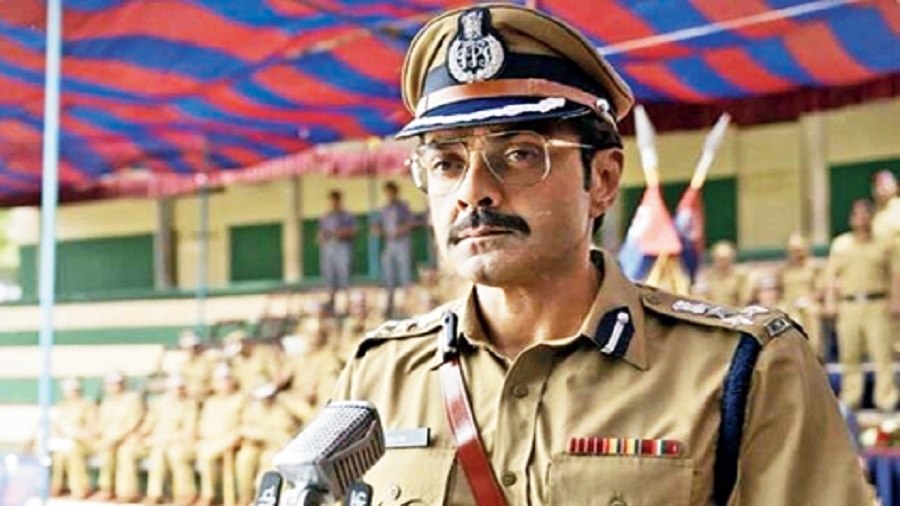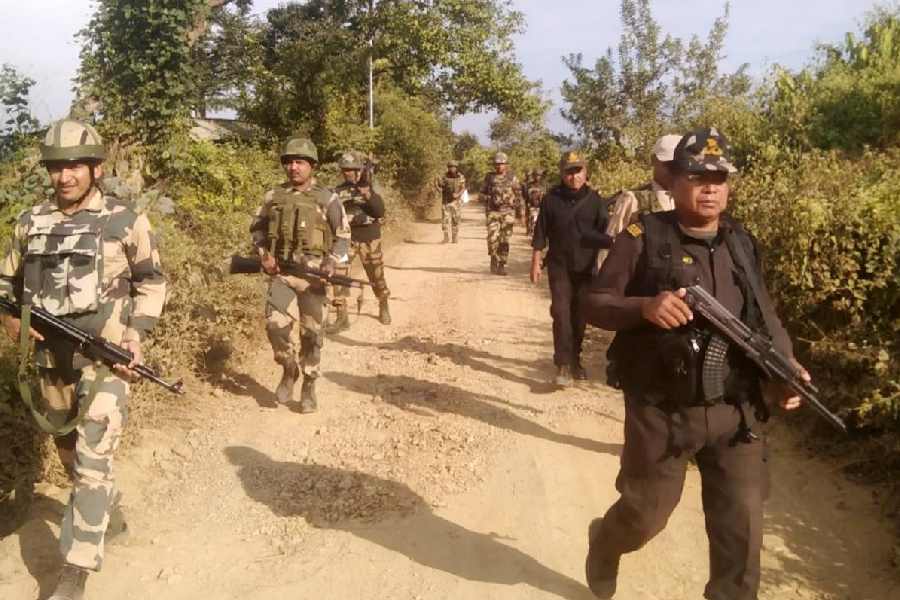Police system ek sikke ke do pehlu hain... law and order. Kabhi kabhi order laane ke liye law ki bali deni padti hain.” These words play out twice in Class of ’83, at the beginning and at the end, encapsulating the world of the film as well as the wherewithal of those who populate it. If that doesn’t convey what this Atul Sabharwal film, ‘loosely inspired’ by S. Hussain Zaidi’s eponymous read attempts to bring to the fore, then Plato’s words, “Good people do not need laws to tell them to act responsibly, while bad people will find a way around the laws”, definitely establish its tone and texture.
The milieu and motivation of Class of ’83 isn’t something that we haven’t seen before, but what makes this film different is how quiet it is, despite the disquietude that forms its DNA. A seething anger pervades Class of ’83, as it does its protagonist Vijay Singh, but Bobby Deol’s face (fun fact: Vijay Singh is Bobby’s bhalo naam), veering from deadpan to even more deadpan, scarcely betrays it. There are consistent gunshots, blood is spilled with abandon, gang wars abound and the law and order establishment is shown rotting at its core, but Class of ’83 is more engaged in the internal than the external. Which works in some bits, doesn’t in others.
The title alludes to, well, the class of ’83 at the police training academy in Nashik. Burdened with demons both personal (his dead wife shows up often in his thoughts, like Mal did with Dom in Inception) and professional (how he let that one get away), Vijay Singh, described as one who loves being out on the field, is now the dean of the academy, handed out a punishment posting of sorts. He travels the gamut from seething to suicidal, quietly nurses a drink and is shown ominously cleaning his razors. His former colleague and now top cop (played by Joy Sengupta) tells him that he’s lucky because he gets to see cops at their “purest, untouched by corruption and departmental politics”. But Singh isn’t interested in anything but vigilantism, often lamenting how bureaucracy and red tape have got in the way of justice. Till he hits upon the idea of ‘injecting’ five truant students into the system as ‘antibodies’, training them to deliver a form of trigger-happy justice. But such decisions come with repercussions. As does Sabharwal’s superficial treatment of a premise that demanded much more.
Sabharwal has the moods (the film gives us some winner ’80s tropes, brought strikingly to life by Mario Poljac’s frames and some superb splicing shots) and the moments (Vijay Singh quietly sitting in his car and attempting to pull his gun on himself), but Class of ’83 hardly dwells on or fleshes out what it has. The first hour is pretty much inert and there is way too much posturing.
The film is set in the ’80s, the era of gangster face-offs in Bombay that have now become the stuff of legend, and Sabharwal shows promise and possibility by weaving in debates about capitalism vs socialism, mill worker politics and the fallout of the Punjab insurgency, but he seems to be in a tearing hurry to get to the finish line. Which means that the viewer, gradually sucked into the world of Class of ’83, is ultimately left high and dry. This should perhaps have been a series instead of a film, but given how static the storytelling often becomes, we aren’t really sure.
Class of ’83 is a prime example of what could have been. Some may warm to it, but the film’s almost romantic portrayal of vigilantism and immediate justice is unarguably disturbing. Especially in the times of trigger-happy lawlessness we live in.
I liked/ didn’t like Class of ’83 because... Tell t2@abp.in











